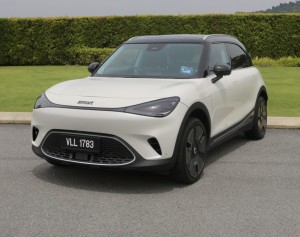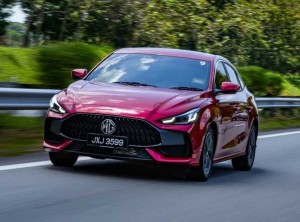STUTTGART: Mercedes-Benz opened on Monday Europe's first battery recycling plant with an integrated mechanical-hydrometallurgical process making it the first car manufacturer worldwide to close the battery recycling loop with its own in-house facility.
The recycling plant in Kuppenheim, 99km west of Stuttgart, is a move to create a genuine circular economy.
Unlike existing established processes, the expected recovery rate of the mechanical-hydrometallurgical recycling plant is more than 96 percent. Valuable and scarce raw materials such as lithium, nickel and cobalt can be recovered – in a way which is suitable for use in new batteries for future all-electric Mercedes-Benz vehicles.

The company has invested tens of millions of euros in the construction of the new battery recycling plant and thus in the value creation in Germany.
Federal Chancellor Olaf Scholz and Baden-Württemberg's Environment Minister Thekla Walker visited the plant for the opening ceremony in Kuppenheim, Baden.
Mercedes-Benz’s technology partner for the battery recycling factory is Primobius, a joint venture between German plant and mechanical engineering company SMS group and Australian process technology developer Neometals.
The plant is receiving funding from the German Federal Ministry for Economic Affairs and Climate Action as part of a scientific research project with three German universities. The project looks at the entire process chain for recycling, including logistics and reintegration concepts.
For the first time in Europe, the Mercedes-Benz battery recycling plant covers all steps from shredding battery modules to drying and processing active battery materials.

The mechanical process sorts and separates plastics, copper, aluminium, and iron in a complex, multi-stage process. The downstream hydrometallurgical process is dedicated to the so-called black mass.
These are the active materials that make up the electrodes of the battery cells. The valuable metals cobalt, nickel and lithium are extracted individually in a multi-stage chemical process. These recyclates are of battery quality and therefore suitable for use in the production of new battery cells.
Unlike the pyrometallurgy established in Europe today, the hydrometallurgical process is less intensive in terms of energy consumption and material waste.
Its low process temperatures of up to 80 degrees Celsius mean it consumes less energy.

In addition, like all Mercedes-Benz production plants, the recycling plant operates in a net carbon-neutral manner. It is supplied with 100 percent green electricity. The roof area of the 6,800 square-metre building is equipped with a photovoltaic system with a peak output of more than 350 kilowatts.
The Mercedes-Benz battery recycling plant in Kuppenheim has an annual capacity of 2,500 tonnes. The recovered materials feed into the production of more than 50,000 battery modules for new all-electric Mercedes-Benz models. The knowledge gained could help scale up production volumes in the medium to long term.












